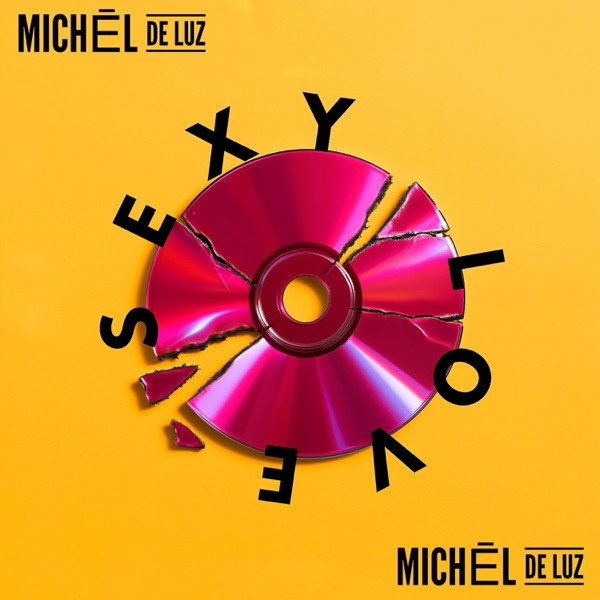
Sabrina Carpenter’s new album “Man’s Best Friend” is here with 12 tracks, including the chart-topping “Manchild” and viral single “Tears.” Bold, provocative, and unstoppable, this is her biggest moment yet
Sabrina Carpenter has returned with what many are already calling the boldest album of her career. On August 29, 2025, the pop star released her seventh studio record, “Man’s Best Friend,” a 12-track project that has sparked excitement, controversy, and viral conversation in just a matter of days. With tracks like “Manchild” and “Tears” leading the way, the album is dominating charts while simultaneously stirring debates about its artistic choices, imagery, and lyrical daring.
“Manchild” marked a historic milestone for Carpenter, giving her a second No. 1 on the Billboard Hot 100 earlier this year. The track not only cemented her status as a mainstream force but also demonstrated her ability to craft pop songs that resonate far beyond radio, living in social media feeds, memes, and TikTok dance challenges. Meanwhile, “Tears,” accompanied by a strikingly stylized music video, captured the internet’s attention with visuals that were as cinematic as they were provocative, sparking endless discussion across fan forums and entertainment outlets.
The new project proves that Carpenter is not a fleeting presence in pop but a star carving out her own lane. Just one year ago, her breakout album Short n’ Sweet launched her into the global spotlight with hits like “Espresso” and “Please Please Please,” both of which dominated playlists and secured her first Billboard 200 No. 1. That album stayed on top for four weeks and positioned Carpenter as one of pop’s brightest new icons. Now, with “Man’s Best Friend,” she has shifted from breakthrough star to a fully established force, daring to push boundaries and experiment with her identity as both a singer and performer.
The record itself leans into humor, irony, and unapologetically direct sexual innuendos, giving listeners a lyrical experience that is playful yet bold. For Carpenter, the approach feels intentional: a declaration that pop music doesn’t have to choose between being fun, provocative, and commercially viable—it can be all three at once. Critics so far have described the album as a mix of irresistibly catchy hooks and lyrics tailor-made to go viral, the kind of content that thrives in the age of instant sharing and social commentary.
One of the most defining elements of “Man’s Best Friend” is its collaboration with Jack Antonoff, the Grammy-winning producer known for shaping some of the most acclaimed pop projects of the last decade. Under his influence, the record takes on a more mature sound, blending mainstream pop gloss with experimental textures that highlight Carpenter’s growth as an artist. The result is an album that feels polished but adventurous, balancing the playfulness of a young star with the depth of an artist fully in command of her creative direction.
But what truly ignited conversation was the album cover. The image, which features Carpenter on all fours with a man pulling her hair, immediately divided opinion. Some labeled it provocative, others called it problematic, while many defended it as bold satire in line with her cheeky lyrical persona. Carpenter herself responded with her characteristic wit, brushing off the criticism by saying the album is not for those who shock easily, though even they might find it funny or playful if they listened without judgment. Her refusal to back away from controversy is part of what has made her such a captivating figure in pop culture, blending vulnerability with fearless confidence.
In recent interviews, Carpenter explained her artistic motivation as rooted in joy and connection. She described the experience of seeing young fans at her shows—often groups of girls in the front rows singing every lyric with passion—as the driving force behind her music. For her, the goal is not to overcomplicate pop but to remind people that music can simply be fun. “We can all breathe a little easier and remember that music is meant to be enjoyed,” she said. “It doesn’t have to be anything more than that.”
That spirit is alive throughout the record. “Manchild,” the lead single, didn’t just chart—it became a global phenomenon, dominating airwaves and playlists while sparking thousands of viral memes. Its success underscored that Carpenter is no longer an up-and-comer but a pop star who can compete directly with the genre’s biggest names. “Tears” built on that momentum, showing her willingness to experiment with darker, edgier visuals that challenge how female pop stars are expected to present themselves.
The album as a whole walks a fine line between commercial polish and artistic rebellion. On one hand, the melodies are sticky and engineered for TikTok virality; on the other, the lyrics reveal an artist who is unafraid to embrace controversy and who refuses to water down her message to appeal to everyone. The duality makes “Man’s Best Friend” not just a collection of songs, but a cultural event that sparks conversations about artistry, empowerment, and the evolving rules of pop stardom.
Fans have embraced the project wholeheartedly. Within hours of release, the hashtag #MansBestFriend trended worldwide on Twitter, while TikTok challenges built around tracks from the album racked up millions of views. Sabrina Carpenter has proven she understands how to turn every album drop into a moment, something that resonates far beyond streaming platforms. The way she merges music, image, and internet culture makes each release feel like a pop spectacle.
This record also marks a significant moment in Carpenter’s personal journey. Having started her career in the Disney Channel orbit, she has fully reinvented herself as one of the boldest voices of her generation. She is no longer viewed through the lens of her early beginnings but as a woman defining pop on her own terms. In “Man’s Best Friend,” she has found her voice—a mix of irreverence, vulnerability, and sharp humor—that separates her from her peers and signals the arrival of a new kind of pop icon.
The success of “Man’s Best Friend” confirms that 2025 belongs to Sabrina Carpenter. With her combination of daring lyrics, viral charisma, and undeniable chart power, she has positioned herself as one of the leading pop stars of the decade. She is not just playing the game of pop—she is rewriting the rules.







